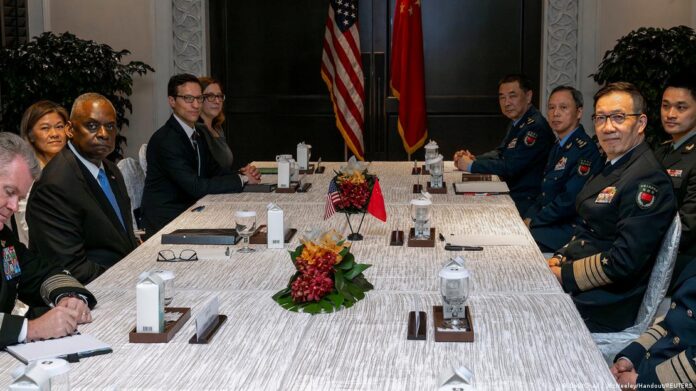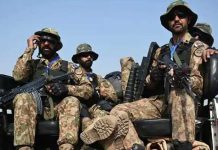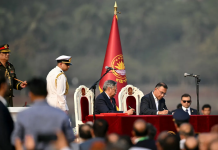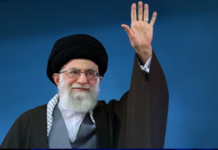-
US Defense Chief urges dialogue with China amid regional tensions; Beijing views US as peace challenge
-
Defence officials at the conference have also been discussing security issues related to the wars in Ukraine and Gaza
-
Chinese Lieutenant General Jing Jianfeng labelled the US as attempting to establish “an Asia-Pacific version of NATO,” branding the US as “the foremost challenge to regional peace and stability
SINGAPORE -In a statement on Saturday at the Shangri-La Dialogue in Singapore, US Defence Secretary Lloyd Austin emphasised the necessity of ongoing dialogue with China and its neighbours to avert an increase in the current tensions within the Asia-Pacific region. He highlighted the US’s dedication to maintaining regional security.
As the US strengthens its defence alliances with various nations across the Asia-Pacific amidst China’s escalating territorial claims, Austin’s remarks signal a clear stance.
This year’s forum occurs just one week subsequent to China’s military exercises near Taiwan—a self-governed island that Beijing considers part of its territory. These drills were described as retribution for pro-independence remarks made by Taiwan’s newly inaugurated President Lai Ching-te.
“Dialogue remains crucial, even if not all discussions are positive,” stated US Defence Secretary Lloyd Austin at the conference, adding that conflict with China is “neither imminent nor inevitable” in his view.
Austin stressed the importance of the US’s commitment to security in the region, evidenced by an increasing number of defence partnerships.
Over the past three years, there has been a “new convergence on nearly all aspects of security” in the Asia-Pacific, according to Austin. He elaborated that this convergence is fostering “a stronger, more resilient, and more capable network of partnerships, heralding a new era of security in the Indo-Pacific.”
Austin made it clear: “The security of the United States is inextricably linked to that of Asia,” asserting the longstanding US presence in the region.
“We are fully committed and here to stay,” he declared.
Austin also sought to allay concerns among regional countries that conflicts in Ukraine and Gaza might distract Washington’s focus.
“Despite significant conflicts in Europe and the Middle East, the Indo-Pacific continues to be our primary theatre of operations,” Austin affirmed in his address.
In reaction to Austin’s remarks, Chinese Lieutenant General Jing Jianfeng labelled the US as attempting to establish “an Asia-Pacific version of NATO,” branding the US as “the foremost challenge to regional peace and stability.”
Jing, the deputy chief of the Joint Staff Department of China’s Central Military Commission, criticised the US Indo-Pacific strategy as designed “to sow division, incite confrontation, and destabilise the region.”
He argued that it “serves only the US’s narrow geopolitical interests, contradicting the historical trend and the collective desire of regional nations for peace, development, and mutually beneficial cooperation.”
In the midst of tensions between the US and China, Austin engaged in significant direct talks with his Chinese counterpart Dong Jun on Friday, marking the first substantial in-person dialogue between the defence leaders of the two nations in a year and a half.
Defence officials at the conference have also been discussing security issues related to the wars in Ukraine and Gaza.
Ukrainian President Volodymyr Zelenskyy, who arrived in Singapore on Saturday, is set to address the meeting in person on Sunday, the final day of the three-day conference, according to organisers.
Zelenskyy will seek to rally support for Kyiv as Russia continues its full-scale, unprovoked invasion of its neighbour, with a new offensive in Ukraine’s northeast leading to recent territorial gains.
His appearance comes after the US decided to lift some restrictions on using US-provided weapons for strikes inside Russia, with Germany following suit in allowing its weapons to be used in some cross-border attacks.
Zelenskyy has hailed the decisions as a “step forward.”






